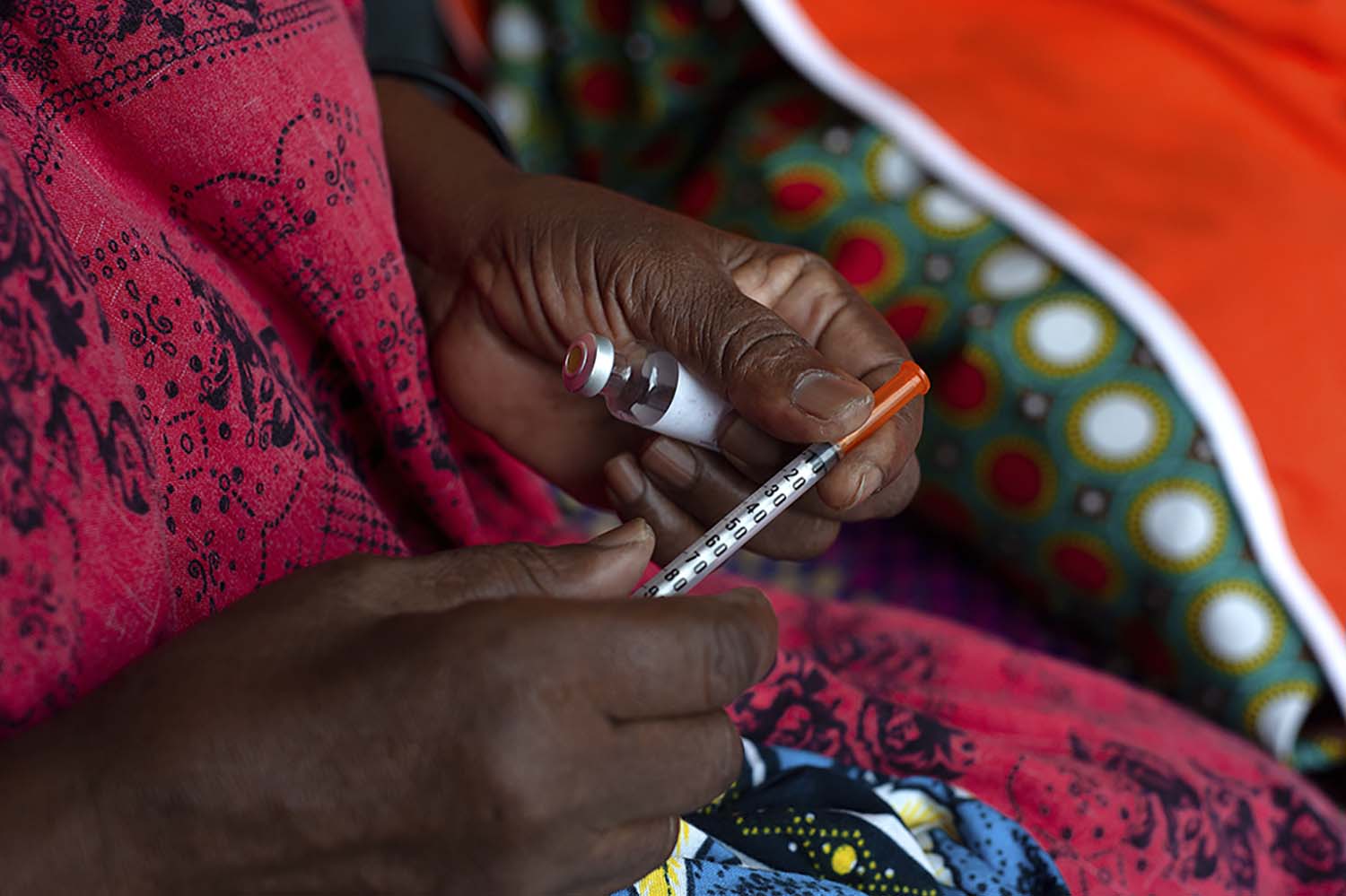What We Do
Vision
All people living with NCDs in LMICs have access to the affordable, basic technologies and medicines, including generics, required for diagnosis and treatment in both public and private facilities.
Mission
The Coalition advocates and provides technical support and tools to strengthen supply security for people living with NCDs.
We focus on supply chain strengthening, capacity building, finance and costing, and advocacy.
We strive to influence change at global, regional, national and sub-national levels.
Our current focus region is East Africa and focus countries are Kenya, Uganda and Tanzania.
I commend the Coalition for its clarity, for using access to NCD treatment as a comprehensive way to approach health reform, and for its comprehensiveness and inclusiveness as it engages with stakeholders across sectors.
Sania Nishtar, Heartfile

Taking Action
The Coalition works to improve supply security for NCD medicines and products at the global, regional and national levels.
The Coalition works at the global level to Influence policy change to establish an enabling environment for NCD supply security and raise the profile of the issue of access to NCD medicines and products. Some key examples include:
- The Coalition co-hosted a side event at World Health Assembly 75 with PATH and the Leona M. and Harry B. Helmsley Charitable Trust. Moving toward equity: Innovative approaches to increase access to affordable NCD medicines and products.
- The Coalition developed key asks to support Coalition member advocacy efforts in the lead up to 71st and 72nd World Health Assembly & 2018 and 2019 UN High Level Meetings (HLM). As a result, MoH Uganda (Coalition member) made a statement from the floor at 71st WHA and submitted the statement provided by the Coalition at the 72nd WHA.
- The Coalition contributed to the WHO High-Level Commission on NCDs “Time to Deliver Report” and the UN HLM on NCDs Outcome Document to ensure access to safe, affordable, effective and quality essential diagnostics, medicines, vaccines and technologies was included in these documents.
- The Coalition held side events on the sidelines of the 72nd and 73rd UNGA and leading up to the HLM on NCDs and continues to actively participate in events such as the Global Dialogue on Financing for NCDs and the Geneva Health Forum to raise the profile of the issue of access to NCD medicines and products.
The Coalition has prioritized East Africa as a starting point for implementation.
- The Coalition is working with the East Africa Community (EAC) to support the development of a regional framework for NCDs and was invited to co-lead a regional meeting held by the EAC Secretariat and the NCD Alliance East Africa in Tanzania in July 2019. The Coalition led discussions focused on supply security and rational use of NCD medicines and products and actionable barriers affecting availability and affordability of medicines and products.
- Continuing the momentum from that meeting, the Coalition has contributed to the consensus document and led the development of an issue paper on the NCD burden facing the region that was presented to the East Africa Council of Ministers on October 31 and November 1, 2019. Looking ahead, the Coalition will be working with the EAC on the development of a regional framework for NCDs with specific focus on issues such as demand forecasting and supply security in the East Africa region.
- The Coalition developed an NCD Forecasting Initiative for Essential Medicines and Products in partnership with the ministries of health in Kenya and Uganda and several local and global experts in forecasting. This program includes a forecasting tool, workshop materials, and user guides. It was initiated in Kenya and Uganda with plans to scale to other countries. Learn more.
The Coalition is leading implementation efforts in Kenya, Uganda, and Tanzania to address the lack of supply security for NCD medicines and products. Prioritized activities include:
- The development and piloting of a demand forecasting model for NCD medicines and products. The lack of a demand forecasting methodology for NCD medicines and products has been noted as a critical barrier through the Coalition’s literature review, studies conducted by PATH, and stakeholder interviews, and hence has been prioritized as a key barrier to be addressed. A technical working group (TWG) has been assembled to develop this methodology as a public global good. The initial pilot of this methodology will take place in East Africa.
- The Coalition is leading the identification of cost escalators along the supply chain to identify markups and inefficiencies that drive up cost for the end users. The first part of the study was conducted by Coalition member RTI International on behalf of the Coalition and demonstrated the exorbitant costs borne by people living with NCDs to access NCD care.
- Next steps for Uganda have been prioritized including a supply chain assessment and capacity building for health workers.

